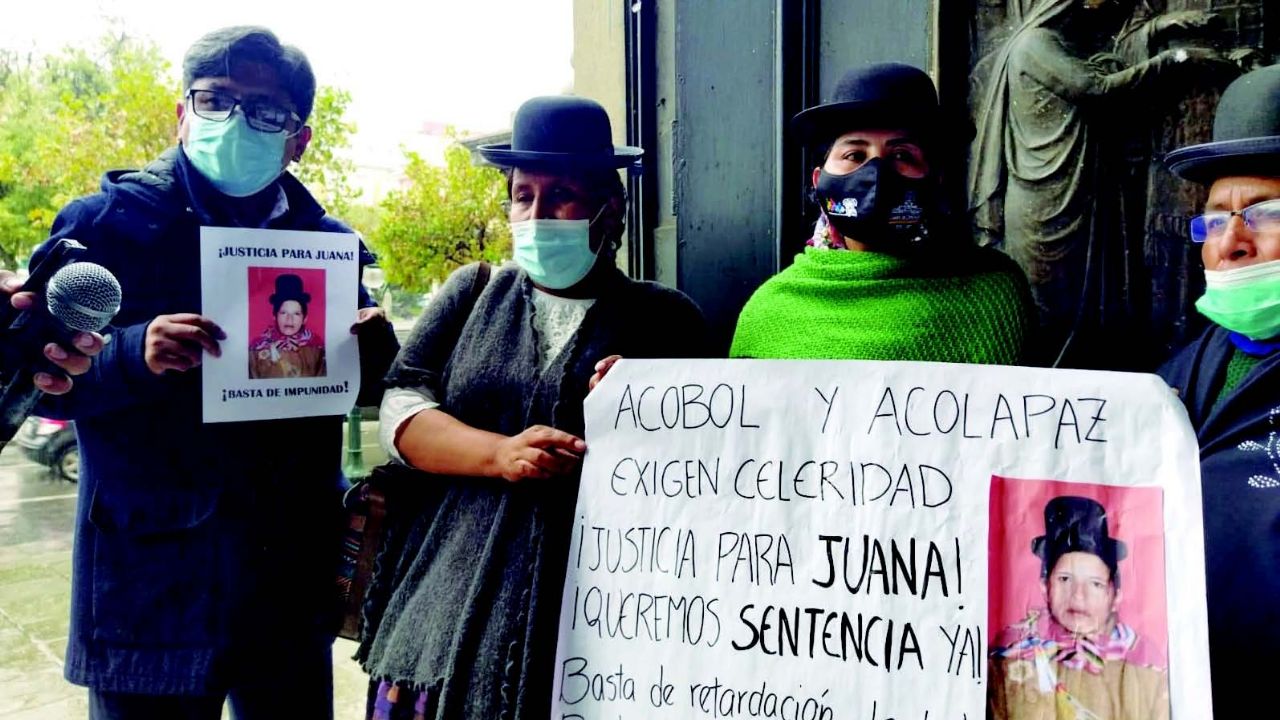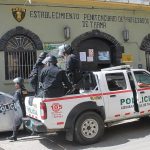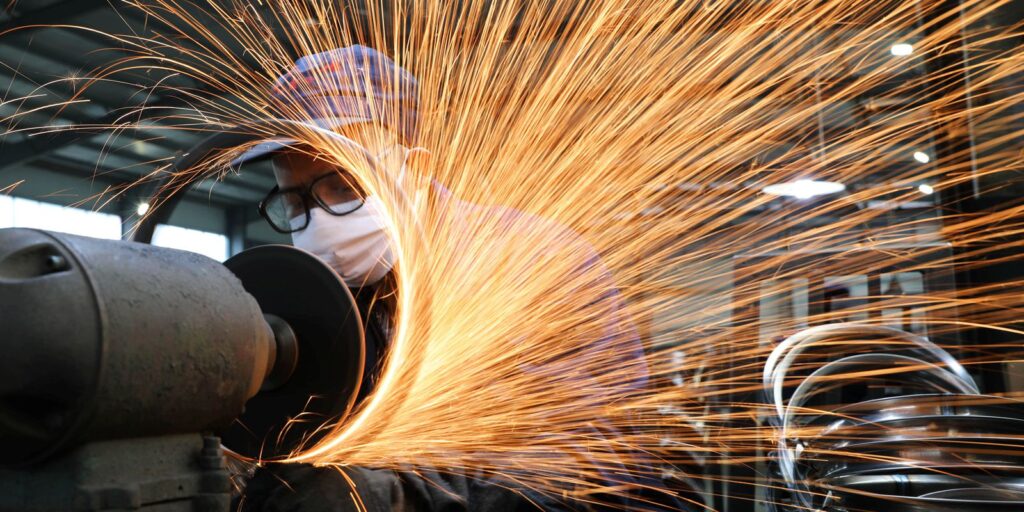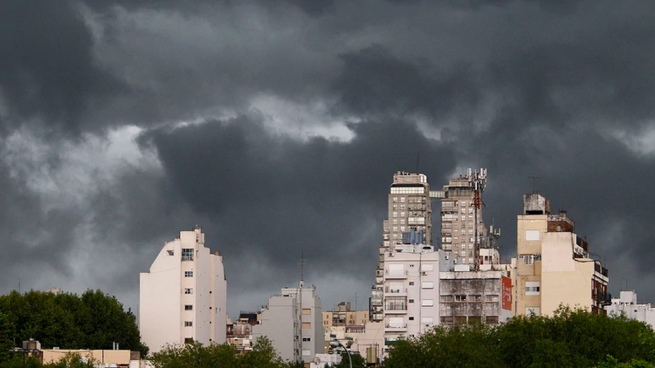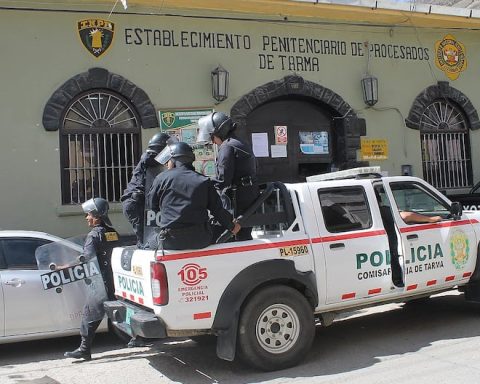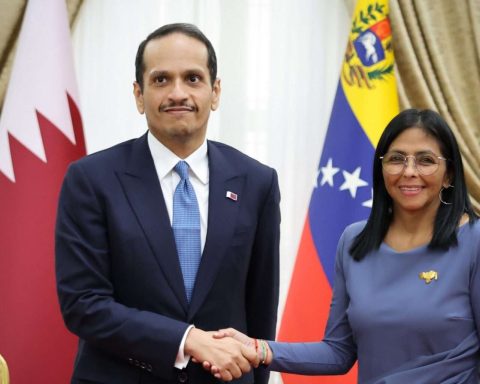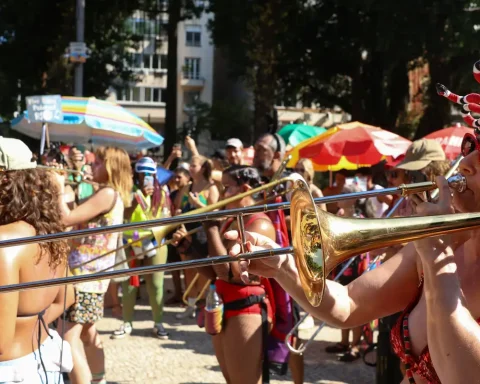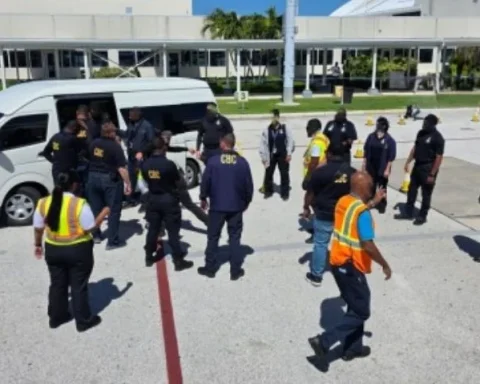Liliana Carrillo V. / La Paz
In 10 years of Law 243 Against Political Harassment and Violence against Women, only 2% of cases have reached a sentence. According to the registry of the Association of Councilors and Mayors of Bolivia (Acobol), from 2015 to date, 677 complaints have been filed by councilors for crimes ranging from murder to pressure to resign.
The cases are many more. We have seen harassment, pressure, psychological and physical aggression against the legally elected authorities; but out of fear, many councilors do not file the complaint or abandon it due to political pressure,” says Josefina Teresa Velásquez Correa, president of Acobol.
Since 2012, Law 243 Against Harassment and Political Violence has been in force in Bolivia. The rule was enacted after the murder of Ancoraimes councilor Juana Quispe, who was a victim of political violence and whose death remains unpunished.
Photo: EFE
In October 2016, the regulations of the law that establishes a procedure for the prevention and immediate attention of cases of violence and political harassment were approved. The mechanism must be activated when the integrity of elected women is at risk.
Complaints without answers
The Acobol record shows that in the last seven years, 677 complaints of violence and political harassment of women elected as councilors were made official. As established by Law 243, the denouncing councilors resorted to the administrative, criminal, constitutional and electoral channels.
In the 2015 management, 21 cases were presented; in 2016 they reached 71; in 2017 there were 75; in 2018 they rose to 117 and in 2019 there were 127. The year 2020 set a record with 170; in 2021 there were 79 and so far in 2022, 17 complaints have already been made official.
However, the sentences were minimal. For example, in 2020, of the 170 complaints filed, only three obtained a ruling. Most were dismissed or abandoned.
According to the latest Acobol report, various factors intervene so that cases of harassment or political violence do not prosper. In the legal way, the biggest obstacles are the difficulty in proving the complaints and the lack of prosecutors. In the administrative channel, the complainants encounter the lack of resources of the municipal councils to carry out the investigations and in the electoral instance the obstacle is the bureaucracy.
“When a complaint reaches the Electoral Court, they don’t accept it immediately; it is subject to a long process and as the pressure mounts, they transfer it to the Public Ministry, where it is normally extinguished. In all cases there is a lack of information from public servants regarding Law 247”, points out the president of Acobol.
Violence, harassment and machismo
Statistically, the cases most denounced by councilors in the framework of Law 238 are: pressure for the resignation of councilors, acts of sexual, physical and psychological violence; as well as excess of authority against councilors, impediment in the exercise of functions and illegal occupation of the council, illegal freezing of salaries, discrimination and defamation.
When half of the municipal management is completed, the pressure and violence against councilors increases so that they resign and make way for their substitutes, under the illegal argument of “party rotation agreements.” This period will come in two years.
In the background is machismo. “All the councilors have experienced it to different degrees. There is progress, but the patriarchal system persists”, confirms Josefina Velásquez.
The current president of Acobol comes from a community where her father was the authority. “When he was 82 years old, I took over and it wasn’t easy because they were expecting a boy and they told me: ‘His brother had to be in his place.’ It has been a long process of years of going step by step until I won the council that I occupy in the municipality of Caracollo”, she says.
10 years of impunity
Last March 12 marked a decade since the assassination of Councilor Juana Quispe.
In 2010, with a majority of votes, Quispe was elected as the first councilor of Ancoraimes (a municipality in the Omasuyos province of the department of La Paz). Due to the constant supervision that she exercised from her seat, the mayor and her councilors prevented her from continuing in office.
After being beaten and dragged through the town square, Quispe presented a constitutional protection that she won, but it was never carried out. Juana suffocated to death. Her body with signs of violence was found on the banks of the Orkojahuira river in La Paz.
The then mayor Félix Huanca (MAS) and the councilors Pastor Cutili, Basilia Ramos and Exalta Arismendi are the defendants in the trial that was dismissed in 2018 and reactivated last September. The oral trial is expected to begin shortly.
This emblematic case, which was the trigger for Law 243, is still unpunished. And in the same situation there are other crimes against councilors who were beaten, humiliated or walled up to stop their oversight tasks and force them to give up their seats.
“Every law is positive, but 243 needs to be socialized and fulfilled. Not everything is bad, through this law we have achieved that women occupy 52% in the municipal councils, although there are only 23 mayors in the country – evaluates Velásquez, president of Acobol-. It’s a fight that continues.”
Ombudsman: The rules against political harassment are not complied with
The Ombudsman’s Office, through the report Without us, there is no democracy. Compliance with Law 243 against political harassment and violence against women, evidenced non-compliance with the mechanisms to sanction acts of political harassment and violence through administrative channels.
“The Bolivian State failed to adopt legal, political, administrative and cultural measures to guarantee and protect women candidates and authorities (incumbent and alternate) the right to a life free of violence, as well as the exercise of their political rights; as well as the omission for the elimination of conditions that promote discrimination against women and that are perpetuated in a patriarchal and sexist State”, says the report in its conclusions.
The study carried out in 130 municipal governments last year, identified that 48 mayors’ offices had adapted and improved their internal regulations in accordance with the provisions of Law 243. And it recorded the commitment of 70 municipalities to work on the adaptation of their regulations.
The report warns about the little progress made by the municipal governments in the installation of equipment for audio and video recording of the sessions, an essential tool to generate evidence in the face of complaints of acts of harassment and political violence. Until 2021, only 17 municipalities had these systems.

Photo: Acobol
On February 1, 2013, Virginia García Parra, a MAS councilor in Tiraque, was found dead. She shortly before she was forced to resign to make way for her substitute.

Joan
Juana Quispe, an elected councilor for the municipality of Ancoraimes, was assassinated on March 12, 2012, after months of political violence. The trial was reactivated and is expected to enter the oral stage.
boarded up
In 2018, the then councilor of Tiquipaya Margarita Siles (MAS) and other councilors of the MNR were walled up for hours in the Council so that they hand over their seats to substitutes.

Vicence
Vicencia Apaza, councilor of the municipality of San Pedro de Curahuara (La Paz), in 2019 denounced that she was a victim of political harassment and bought a motorcycle to follow her detractors.

Hits
Sonia Alanoca, Councilor for Battles in 2018, was beaten to give up her seat. Her colleague Lidia Quispe had locks of her hair pulled out and her braids cut.
Abuse
Two Tapacarí councilors were beaten in 2017 by the then president of the Council, who while drunk tried to sexually abuse them and then abandoned them along the way.

Bullying
Rossmery Andia denounced in 2018 that she was forced to resign from her council in Pocona, Cochabamba, because she was pregnant. Leaders of her MAS accused her of setting a “bad example.”
